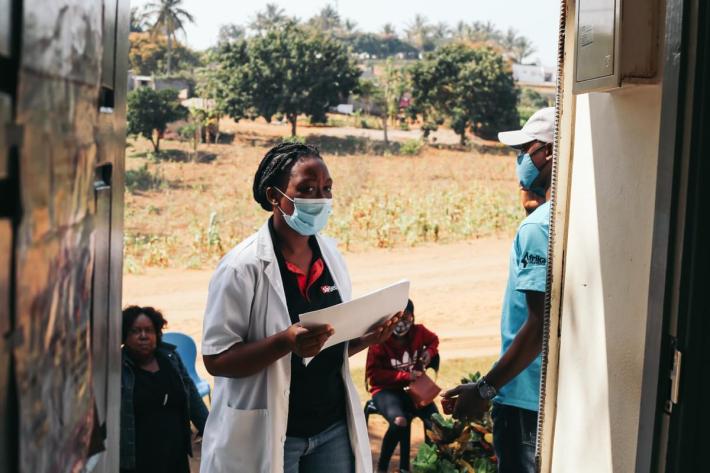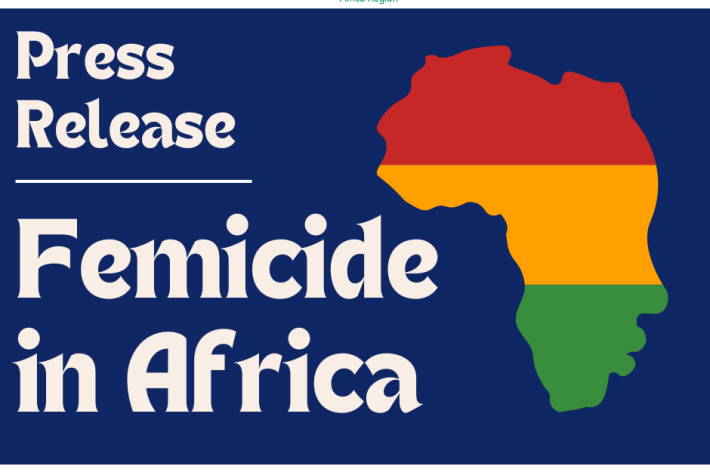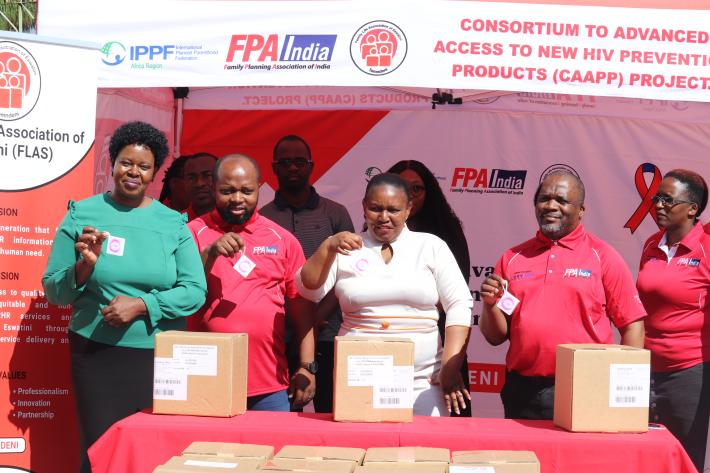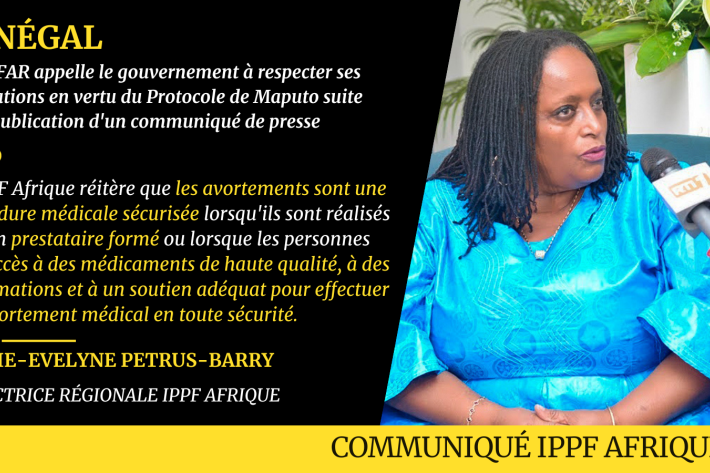Latest press releases
A selection of stories from across the Federation
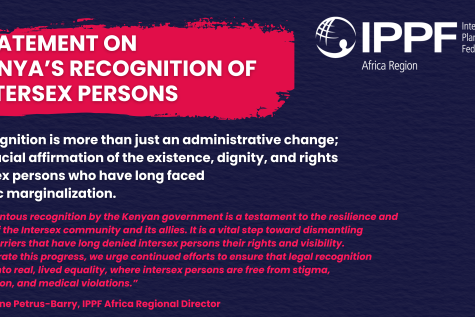
Kenya
IPPF Africa Region Welcomes Kenya’s Landmark Recognition of Intersex Persons
IPPF Africa Region Welcomes Kenya’s Landmark Recognition of Intersex Persons Nairobi, Kenya: 13 February 2025 – On 31 January 2025, Kenya has taken a groundbreaking step towards inclusivity and human rights by officially recognizing intersex as a sex marker alongside male and female in the Kenya Legal Notice 153 of 2025.

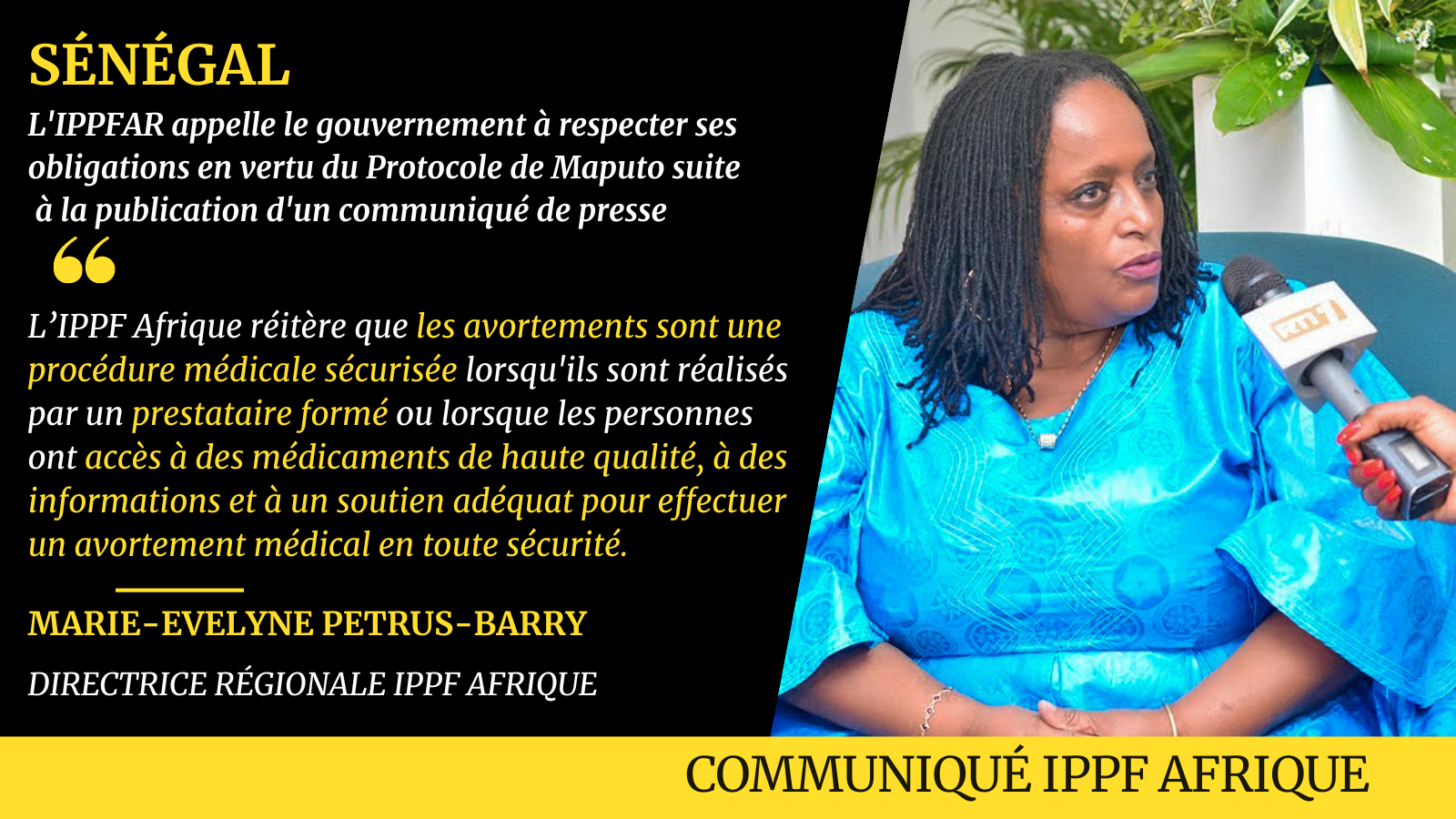
| 04 July 2024
Senegal: IPPFAR Calls on Government to honour Maputo Protocol Obligations in Wake of Press Release
Senegal: IPPFAR Calls on Government to honour Maputo Protocol Obligations in Wake of Press Release 4 July 2024, Nairobi, Kenya: On 8 June 2024, the Ministry of Health and Social Action, Senegal, issued a statement titled ‘On the dangers of induced abortions’ (‘Sur les dangers des avortements provoqués’). While the Senegalese Ministry of Health is correct in warning its citizens of the dangers of unsafe abortions, we are concerned about the interchangeable use of the terminologies “induced abortions”, “clandestine abortions”, and “unsafe abortions” in the statement. Senegal’s penal code completely prohibits the termination of pregnancy, while the medical code of ethics allows an abortion if three doctors agree that it is necessary to save a woman’s life. Such restrictive laws lead to clandestine abortions, while unsafe abortions refer to procedures done by an unskilled provider in a manner that does not adhere to WHO guidelines. “IPPF Africa reiterates that abortions are a safe medical procedure when provided by a trained provider or when a person has access to high quality medication, information and support to safely undergo a medical abortion”, said Marie-Evelyne Petrus-Barry, IPPF Africa Regional Director. The statement makes clear the Government’s concern for the health and wellbeing of women and girls, therefore IPPFAR urges the Ministry of Health and Social Action of Senegal to recognise that without access to safe abortion care, women will continue to suffer and seek life-threatening alternatives. Legally restricting abortion does not reduce rates of abortion, instead, they increase the rates of unsafe abortion and the associated risks including high rates of maternal mortality, which runs counter to the aims of the Senegalese Government as outlined in its press release. Access to safe abortion services is grounded in international legal frameworks and standards, supported by fundamental human rights principles. “We encourage the Senegalese Government to recommit to its obligations under the Maputo Protocol which it ratified in 2005, particularly Article 14(2)(c), which says that States must protect the reproductive rights of women including legally permitting abortion care in cases of sexual assault, rape, incest and where the continued pregnancy endangers the mental and physical health of the mother or the life of the mother or foetus”, added Marie-Evelyne Petrus-Barry. Access to legal and safe abortion reduces preventable maternal mortality. IPPF Africa supports the call by local civil society organisations to break the stereotypes around abortion while also providing accurate health-based information. END For further information or to request an interview, please contact: -Mahmoud GARGA, Lead Strategic Communication, Voice and Media, IPPF Africa Regional Office (IPPFAR) – email: [email protected] / Tel: +254 704 626 920 ABOUT IPPF AFRICA REGION (IPPFAR) The International Planned Parenthood Federation Africa Region (IPPFAR) is one of the leading sexual and reproductive health (SRH) service delivery organization in Africa, and a leading sexual and reproductive health and rights (SRHR) advocacy voice in the region. Headquartered in Nairobi, Kenya, the overarching goal of IPPFAR is to increase access to SRHR services to the most vulnerable youth, men and women in sub-Saharan Africa. Supported by thousands of volunteers, IPPFAR tackles the continent’s growing SRHR challenges through a network of Member Associations (MAs) in 40 countries. We do this by developing our MAs into efficient entities with the capacity to deliver and sustain high quality, youth focused and gender sensitive services. We work with Governments, the African Union, Regional Economic Commissions, the Pan-African Parliament, United Nations bodies among others to expand political and financial commitments to sexual and reproductive health and rights in Africa. Learn more about us on our website. Follow us on Facebook, Twitter, Instagram and YouTube.
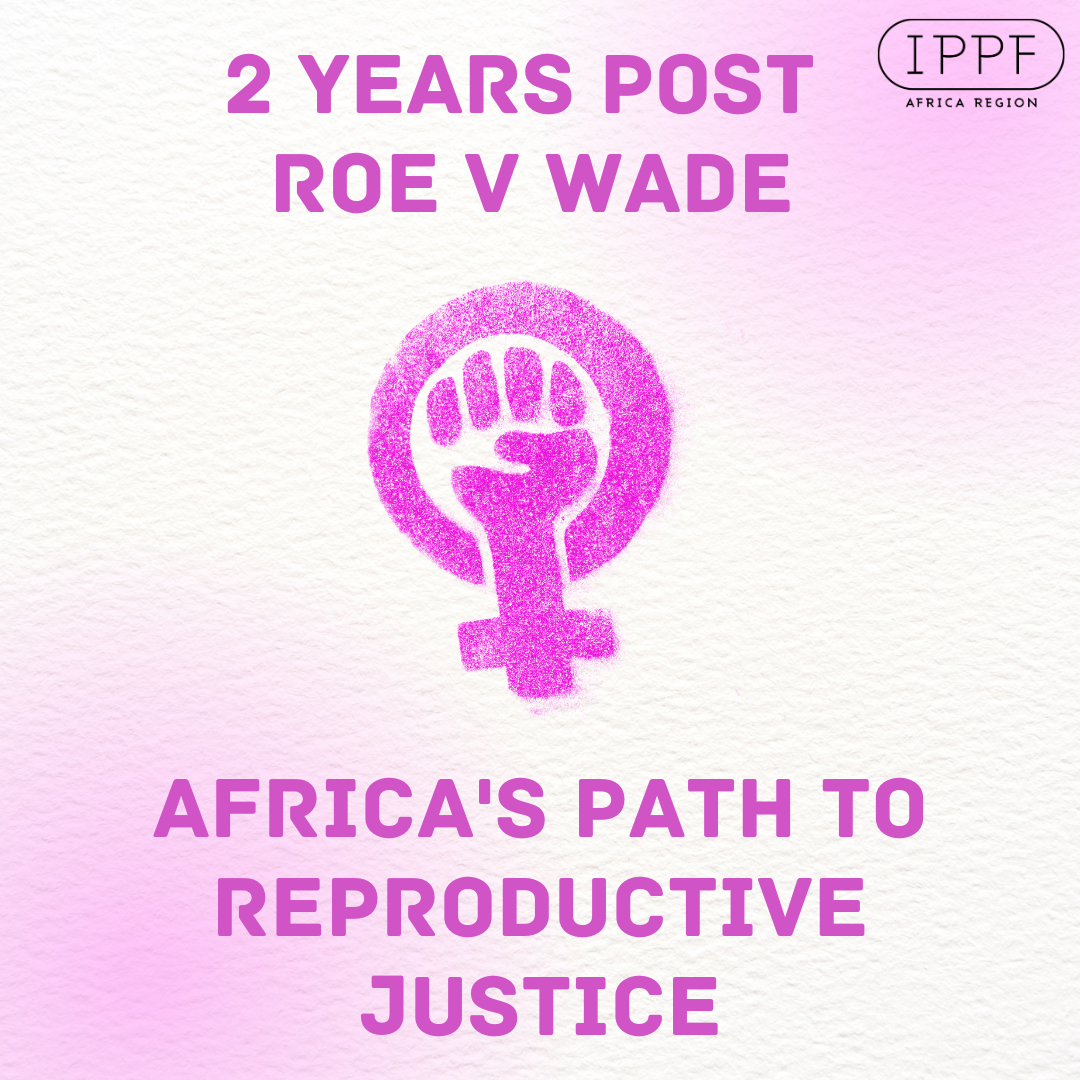
| 24 June 2024
Two Years Post-Roe: Africa's Path to Reproductive Justice
By Marie-Evelyne Petrus-Barry and Mallah Tabot June 24th this year marks the second anniversary of the repeal of Roe v. Wade, a seismic shift in the landscape of reproductive rights that has reverberated far beyond the borders of the United States. In June 2022, the US Supreme Court overturned the landmark 1973 ruling which had established a woman's legal right under the US Constitution to have an abortion. This repeal has had global repercussions, further emboldening anti-abortion movements, and influencing reproductive rights debates, policies, funding, and services. In Africa, not only did it send shockwaves, but has also prompted a reflection and re-evaluation of our role as African stakeholders in shaping the future of reproductive rights everywhere on the continent. In many countries on the continent where access to abortion care is already fraught with challenges, this development serves as a stark reminder of the fragility of reproductive rights. It highlights the danger of complacency and the need for vigilance in protecting and advancing these rights and reminds us that abortion is not a moral issue for debate, it is healthcare, and a fundamental human right. While the repeal has sparked renewed activism and advocacy for rights actors on the continent, it has also further emboldened conservative factions and a growing anti-rights movement to push for more restrictive laws and policies through novel tactics to further their agenda. Under the guise of protecting the family, anti-abortion narratives are used as entry points to infiltrate political, legislative and advocacy spaces to roll back hard-won gains. Even going as far as setting up alternative research institutions in Africa to generate quasi-scientific evidence to counter reputed research bodies like the Guttmacher Institute. Increasingly, a key tactic is the weaponizing of First Ladies to further the anti-rights agenda. In Kenya, the National Family Protection Policy, drafted by a major anti-rights group, Citizen Go was launched by the First Lady, despite not undergoing public participation and receiving lots of criticism from rights actors. In Uganda, the Geneva Consensus declaration, an anti-abortion joint statement is making inroads in the country through its affiliation with the First Lady, even though the “Consensus” has no legal or policy underpinning. This trajectory underscores a critical reality: Nothing is safe, our continent is a battleground for the ideological struggles taking place elsewhere in the world, sadly, our human rights, including SRHR are at the highest risk. We must forge our own path, grounded in the unique political contexts of our nations through our partnerships with local organizations and governments. As one of the leading voices on SRHR advocacy and services in Africa, IPPF believes now is the time for Africa to assert its leadership in the global fight for reproductive justice. In collaboration with other key actors on the continent and beyond, IPPF is committed to continue playing a pivotal role in the SRHR landscape of Africa. We will continue to expand access to abortion care, especially for the most vulnerable and marginalized, comprehensive sexuality education, contraceptive services and reaching those in humanitarian settings. Despite these efforts, much work remains. The disparities in access and the entrenched stigma surrounding abortion care continue to hinder our progress. One of the key initiatives we are proud to be part of is the CATALYSTS Consortium, which was born out of this landmark ruling in June 2022. Following the ruling, IPPF Africa Region, Ipas Africa Alliance, Centre for Reproductive Rights Africa, Population Council Kenya and FIGO came together to discuss the ruling’s implications on the continent and consider the case for an abortion consortium that might more effectively protect and promote abortion rights in Africa. Launching on June 27th, the Consortium has set an ambitious and unambiguously comprehensive vision for abortion care for all in Africa. This type of organic consortium on abortion has not yet been attempted. As African thought leaders, field builders and a vehicle for driving accountability, we are a Consortium of the brave with a track record of never backtracking. Our solution is powerful, impactful, and led by those doing the work while building an African critical mass that can effectively open doors, advocate more strongly and underpin bolder action. CATALYSTS is Africa-led, committed to decolonizing, and reframing the discourse around abortion rights in Africa by centring African perspectives, experiences, and voices. But we cannot achieve our goals in isolation. It is imperative that African governments, activists, youth groups and other civil society groups recognize the urgency of prioritizing reproductive rights. Governments must decriminalize abortion, ensure access to contraceptives, and protect the rights of individuals to make informed choices about their reproductive health and rights. Cross-border activist solidarity is imperative if we must move the needle on reproductive justice, and young people should be recognized as not just a passive group with SRHR needs but as critical actors at the centre of the journey towards reproductive justice. IPPF ARO stands ready to champion this charge, but we need the support and collaboration of governments, communities, and international partners. CATALYSTS launches on June 27th after close to two years of consultation, course correction, investment, and realignment. I invite you to join us in bringing this vision to life, which will be marked by the unveiling of the website, Theory of Change, and call to action. It promises to be a celebration of our collective achievements and a testament to the transformative power of collaboration. As we mark the second anniversary of the Roe v. Wade repeal, the stakes could not be higher for African SRHR actors. The urgent need for a unified and proactive approach to safeguard and advance reproductive rights on the continent is imperative as the path forward requires bold action, unwavering commitment, and a collective direction. For us, the lesson is clear: They are coming for us, bolder, stronger, and more organized, and we cannot depend on the legal frameworks or political will of foreign nations to safeguard our reproductive rights. Instead, we must strike back and reclaim our narrative, and enforce our own robust policies that reflect the needs and realities of our people.

| 26 June 2022
U.S Supreme court overturns Roe v. Wade in biggest blow to women's health and rights in recent history
Nairobi – 25 June 2022 – The decision by the US Supreme Court to overturn the landmark Roe V Wade on abortion will trigger total or near total bans on abortion care in approximately 26 states across the United States of America. This decision not only affects the United States but undoubtedly we will see a ripple effect across the world. Overturning Roe v. Wade is the biggest blow to women's health and rights in recent U.S history. It removes 50 years of safe and legal abortion across the U.S. and puts the lives of millions of women, girls and gender diverse people into the hands of state legislators – many of whom are Conservative extremists who are anti-woman, anti-LGBTI+ and anti-gender. By continuing this attack on women's bodies and forcing them to carry pregnancies to term, the highest court in the United States has reached its lowest point, robbing millions of their liberty, bodily autonomy and freedom - the very values the United States prides itself on. The decision is also out of step with the America people, the majority of whom support access to abortion care. "The fallout from this calculated decision will also reverberate worldwide, emboldening other anti-abortion, anti-woman and anti-gender movements and impacting other reproductive freedoms. The justices who put their personal beliefs ahead of American will, precedent and law will soon have blood on their hands, and we are devastated for the millions of people who will suffer from this cruel judgment", said Dr Alvaro Bermejo, Director of the International Planned Parenthood Federation. “We know from our experience in sexual and reproductive health and rights that extremist groups and lawmakers opposed to gender equality have fought long and hard to control women’s and girls’ bodies. These groups play politics with the bodily integrity of women and girls, denying scientific findings and challenging well-grounded evidence that banning abortion does not stop women from choosing to have the procedure, only forcing them to turn to potentially dangerous alternatives. These groups also force health care providers to choose between saving a woman’s life and facing criminal charges. There is no such thing as preventing abortion; there is only banning safe abortion”, said Marie-Evelyne Petrus-Barry, International Planned Parenthood Federation, Africa Region (IPPFAR) Regional Director. She further added that “while the US may be regressing and rolling back on the human rights of women and girls, we now look to other countries including Benin and Kenya, which have recently signalled their commitment to protecting and fulfilling the rights of women and girls to access safe abortion care. These countries now lead the charge, and we as global voices in reproductive rights worldwide, must continue working hard to make these rights a reality, while maintaining and building on them.” END Media Contacts: Mahmoud Garga, Lead Specialist - Strategic Communication, Media Relations and Digital Campaigning, IPPF Africa Regional Office (IPPFARO) – email: [email protected] -Phone +254 704 626 920 ABOUT IPPF AFRICA REGION (IPPFAR) The International Planned Parenthood Federation Africa Region (IPPFAR) is one of the leading sexual and reproductive health (SRH) service delivery organization in Africa, and a leading sexual and reproductive health and rights (SRHR) advocacy voice in the region. Headquartered in Nairobi, Kenya, the overarching goal of IPPFAR is to increase access to SRHR services to the most vulnerable youth, men and women in sub-Saharan Africa. Supported by thousands of volunteers, IPPFAR tackles the continent’s growing SRHR challenges through a network of Member Associations (MAs) in 40 countries. We do this by developing our MAs into efficient entities with the capacity to deliver and sustain high quality, youth focused and gender sensitive services. We work with Governments, the African Union, Regional Economic Commissions, the Pan-African Parliament, United Nations bodies among others to expand political and financial commitments to sexual and reproductive health and rights in Africa. Learn more about us on our website. Follow us on Facebook, Twitter, Instagram and YouTube.











